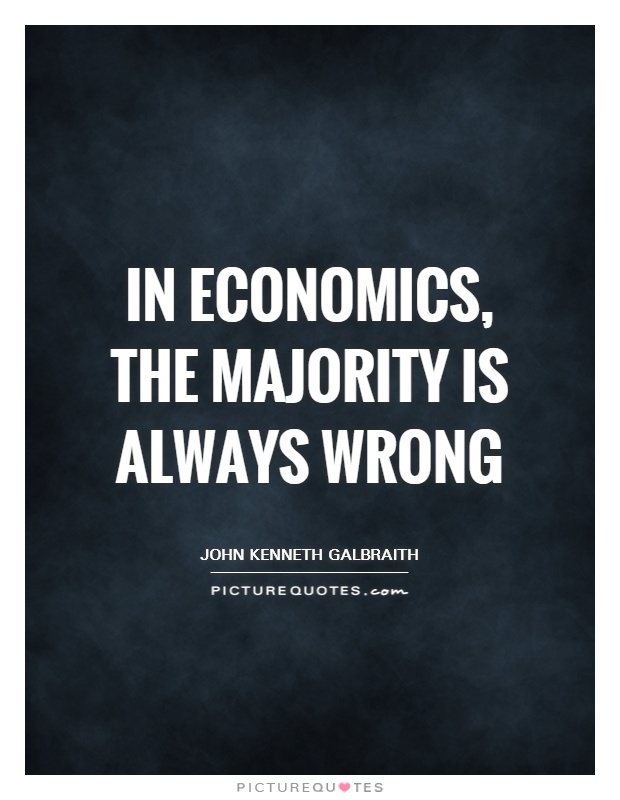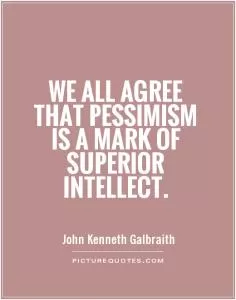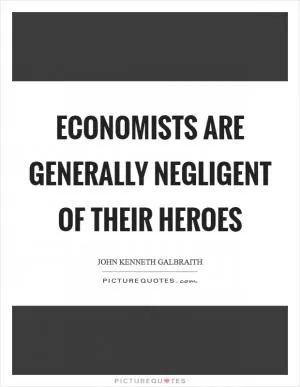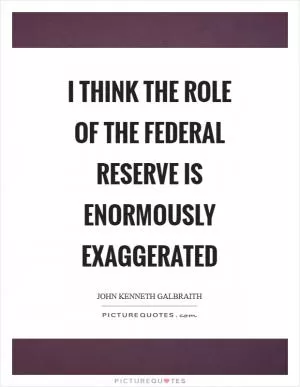In economics, the majority is always wrong

In economics, the majority is always wrong
John Kenneth Galbraith, a renowned economist and author, once famously said, "In economics, the majority is always wrong." This statement encapsulates his belief that conventional economic wisdom often fails to accurately predict or explain real-world economic phenomena. Galbraith was a vocal critic of mainstream economic theories and argued that they often overlooked important factors and failed to account for the complexities of the modern economy.One of the key reasons why Galbraith believed that the majority is always wrong in economics is the influence of power and vested interests. He argued that economic theories are often shaped by those in positions of power, such as large corporations and wealthy individuals, who seek to promote their own interests. This can lead to a distortion of economic analysis and policy recommendations, as the majority may be swayed by the interests of the powerful minority.
Galbraith also criticized the reliance on mathematical models and abstract theories in economics, arguing that they often fail to capture the full complexity of economic systems. He believed that economists should pay more attention to real-world data and empirical evidence, rather than relying solely on theoretical models. This emphasis on empirical analysis was a key feature of Galbraith's own work, as he sought to understand economic phenomena through careful observation and analysis of real-world data.
Furthermore, Galbraith believed that the majority is always wrong in economics because of the inherent uncertainty and unpredictability of economic systems. He argued that economic events are often influenced by a wide range of factors, many of which are difficult to predict or control. This makes it challenging for economists to accurately forecast economic trends and outcomes, leading to frequent errors and misjudgments.
Overall, John Kenneth Galbraith's statement that "In economics, the majority is always wrong" reflects his skepticism towards mainstream economic theories and his belief in the importance of critical thinking and empirical analysis. While his views may have been controversial at the time, they continue to resonate with many economists and policymakers who recognize the limitations of conventional economic wisdom.












 Friendship Quotes
Friendship Quotes Love Quotes
Love Quotes Life Quotes
Life Quotes Funny Quotes
Funny Quotes Motivational Quotes
Motivational Quotes Inspirational Quotes
Inspirational Quotes